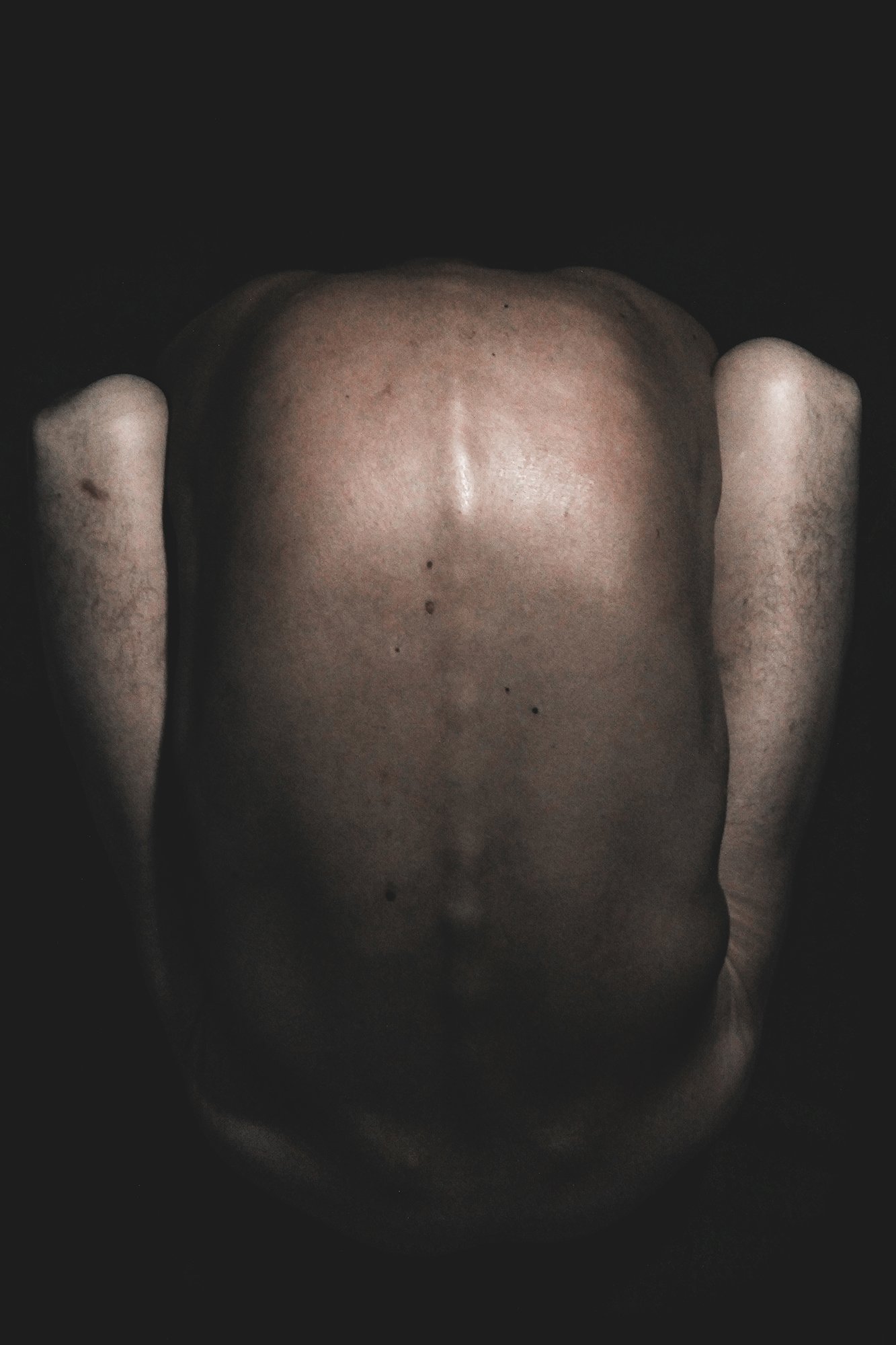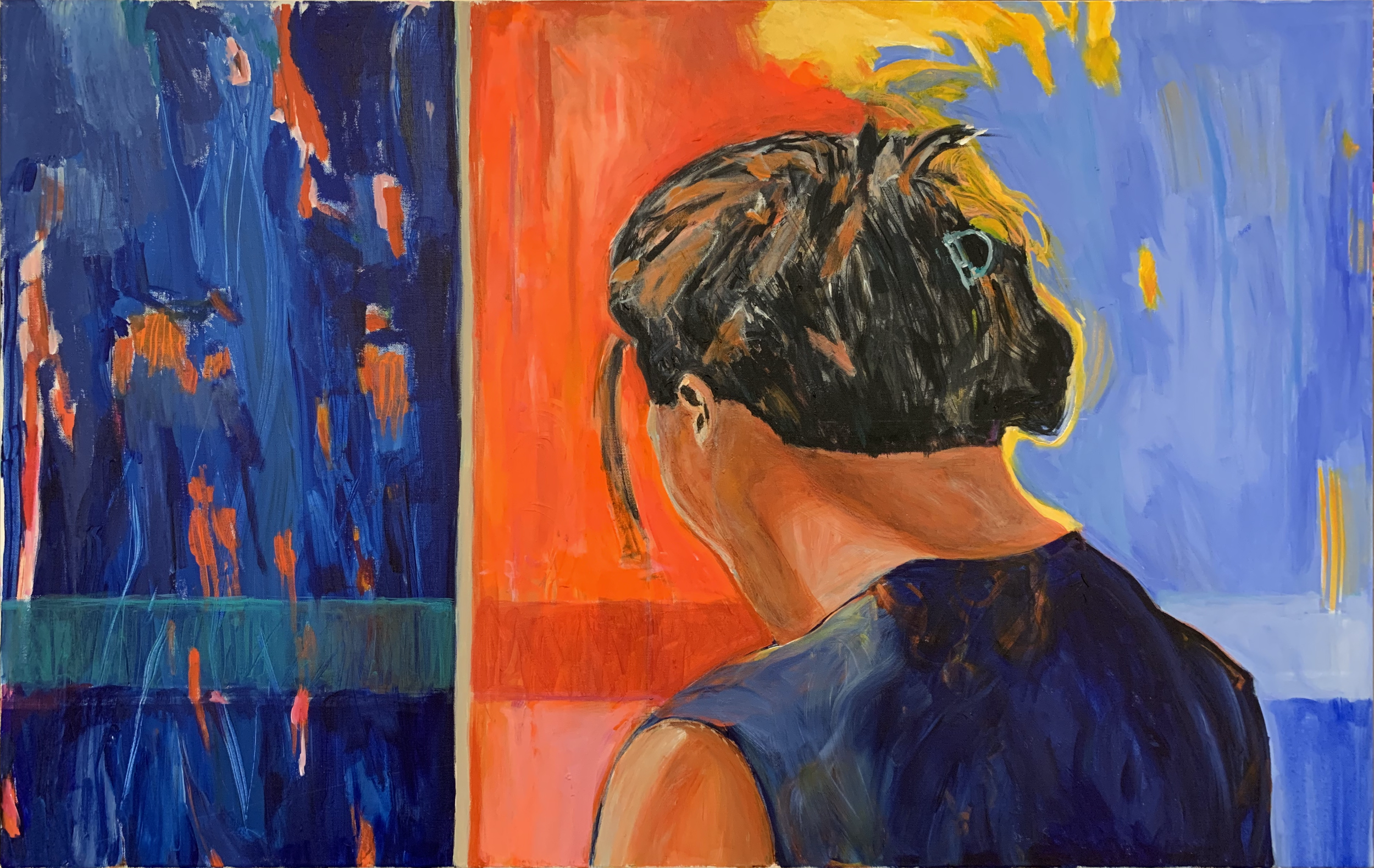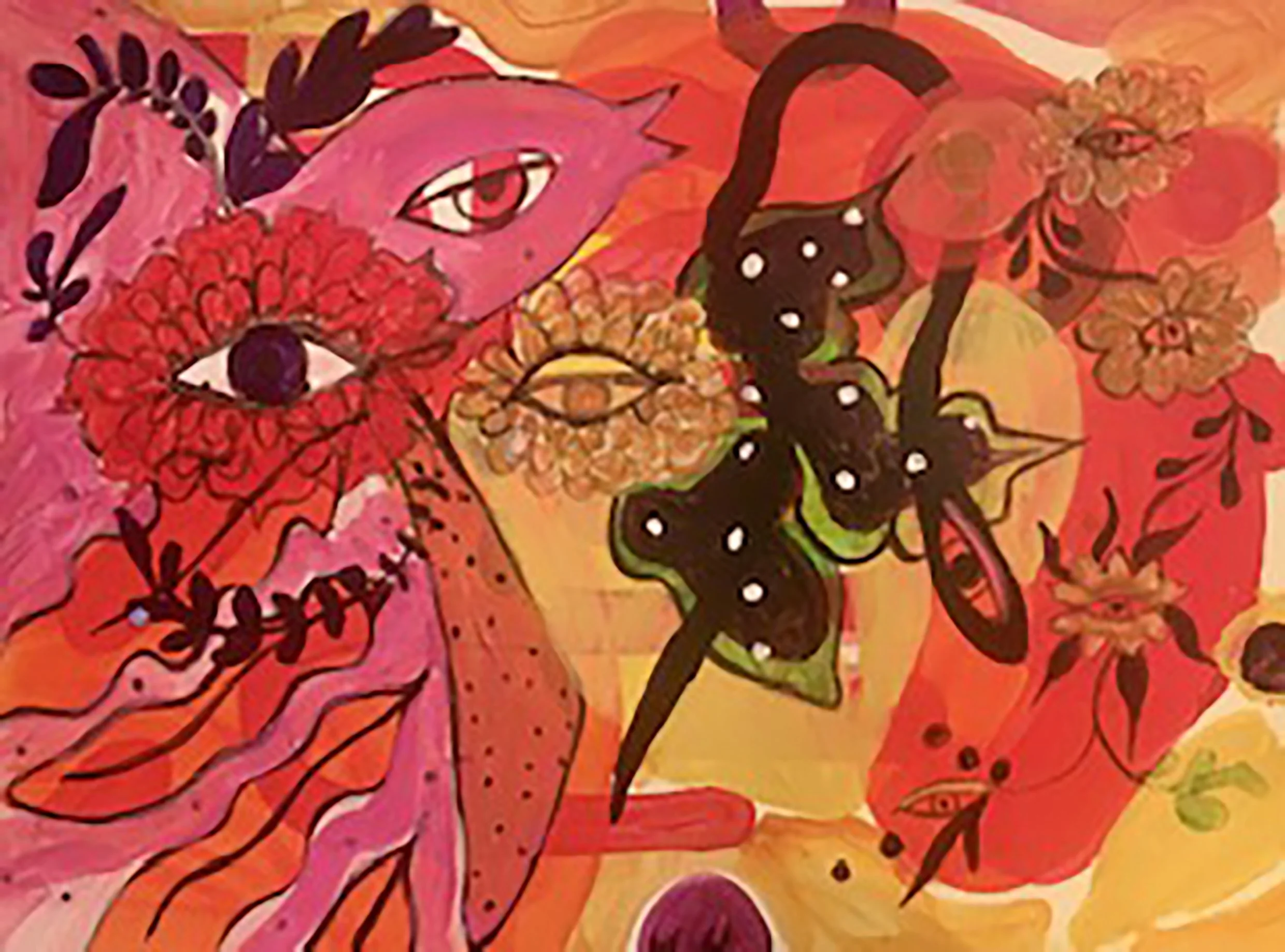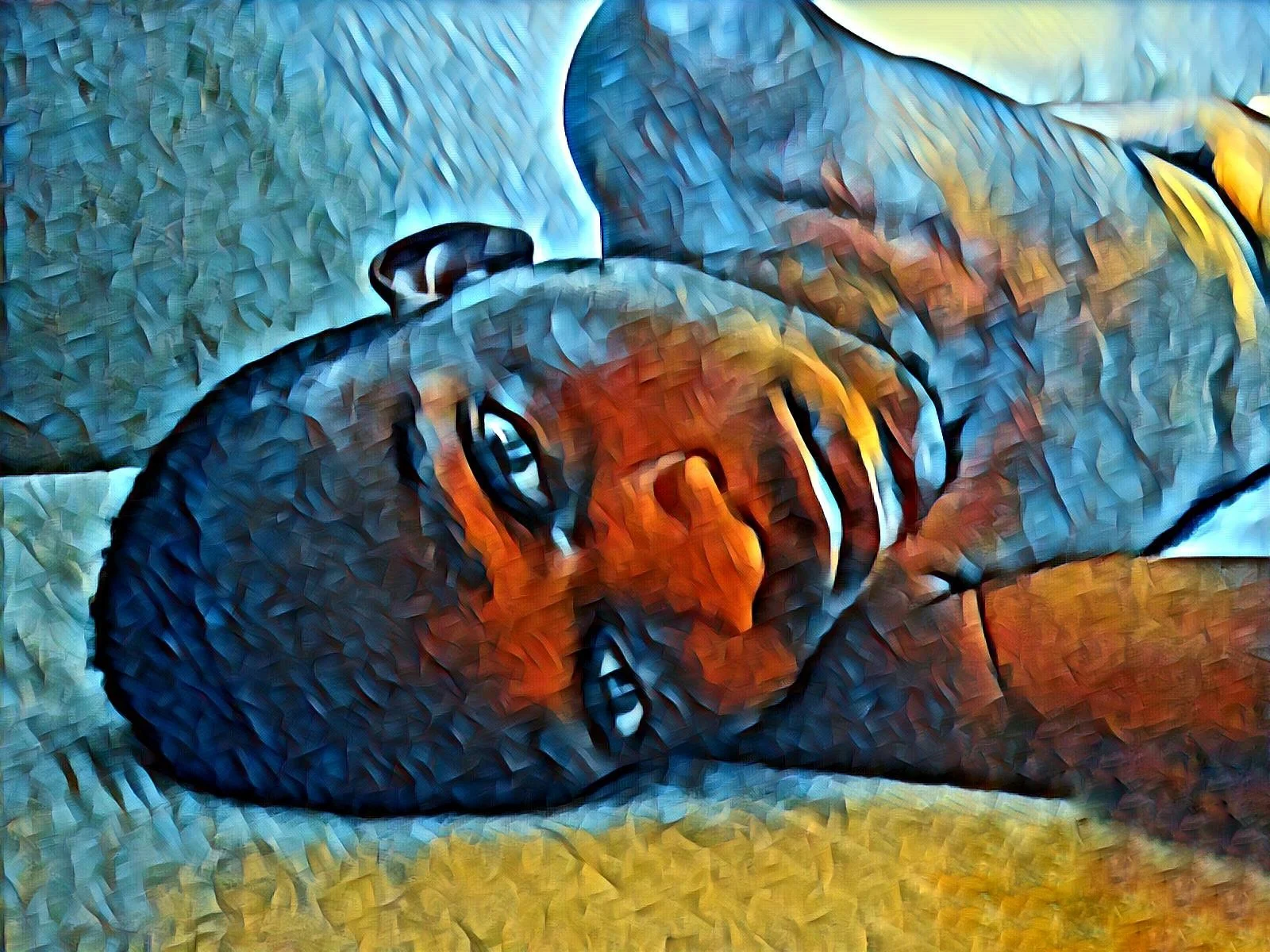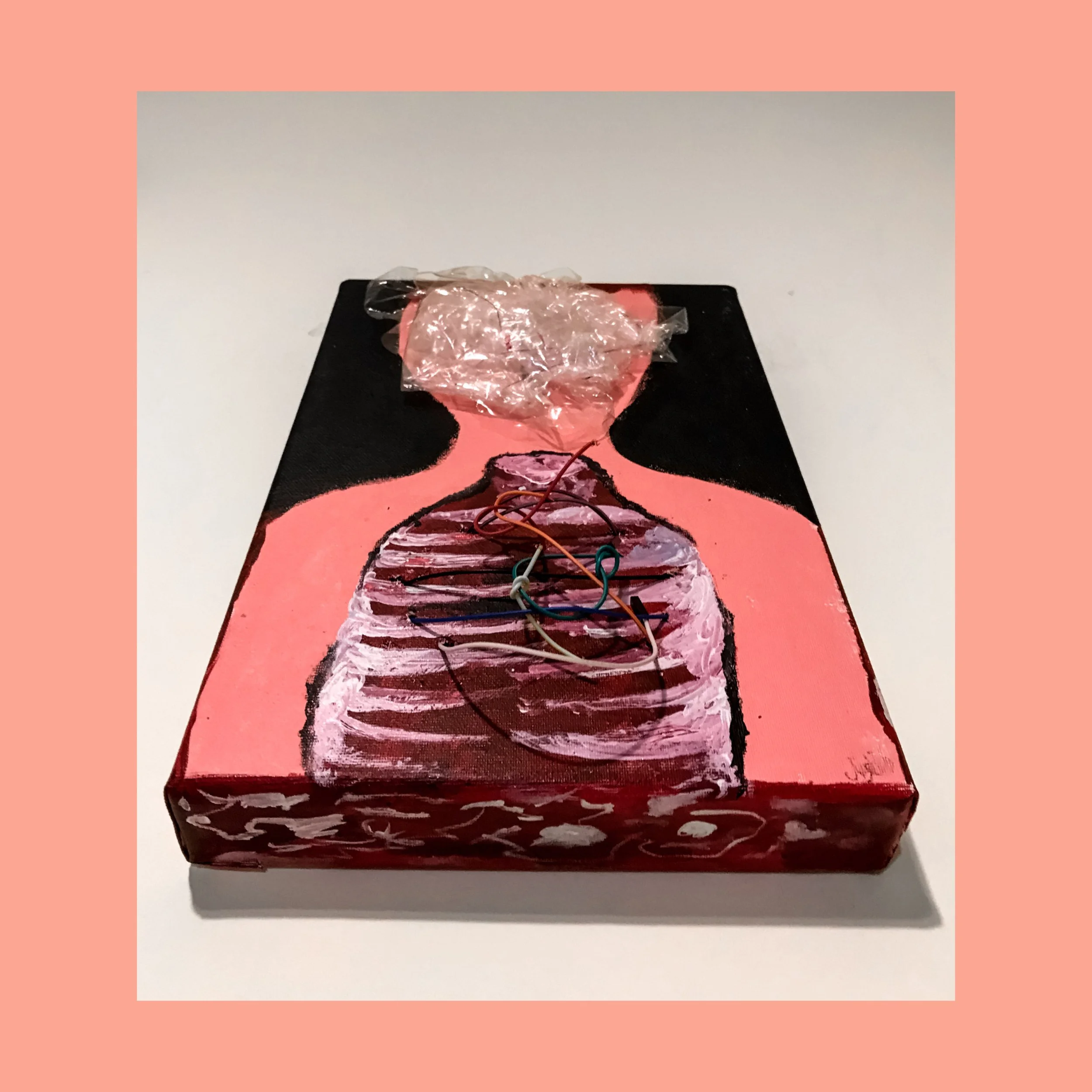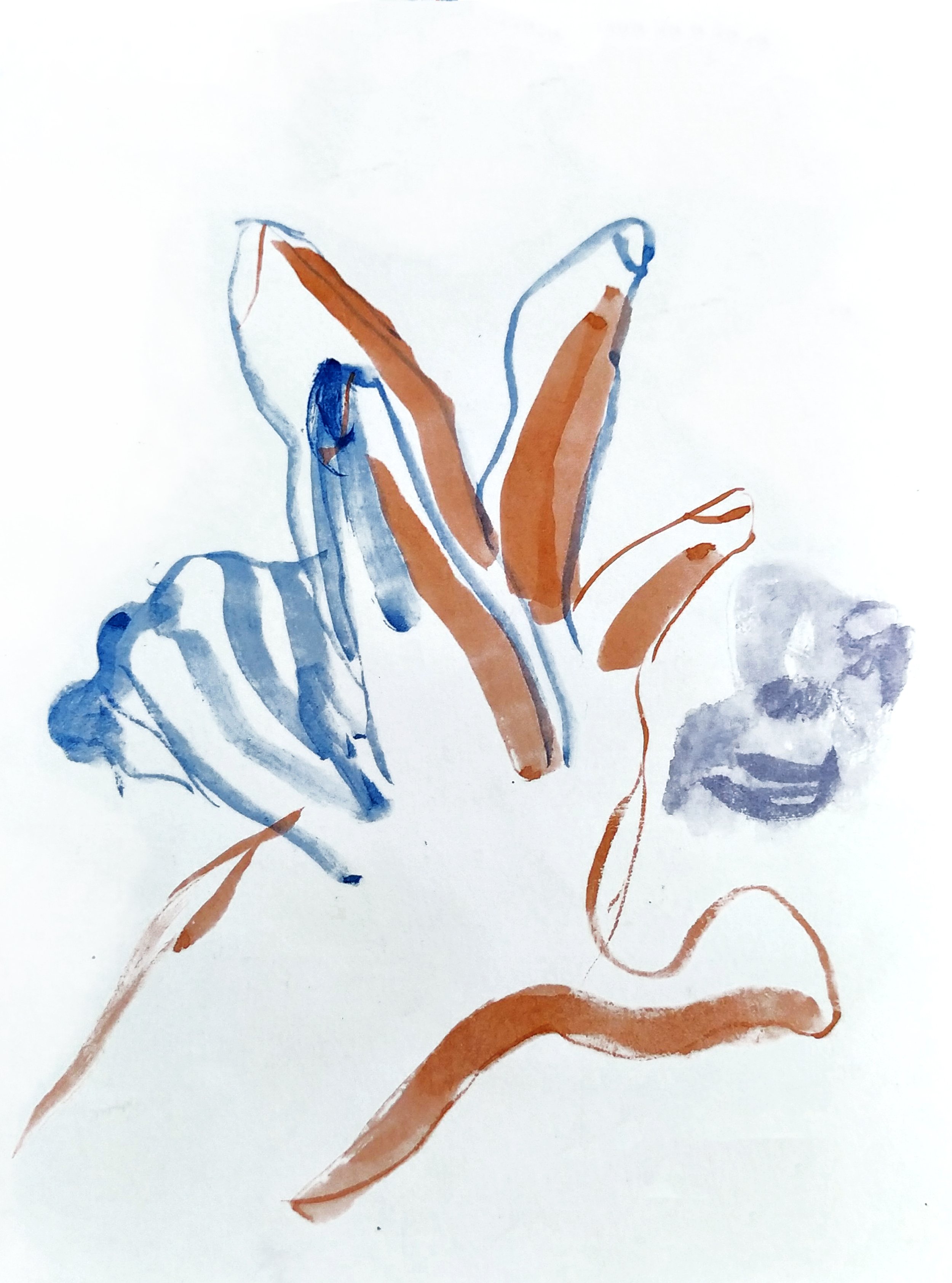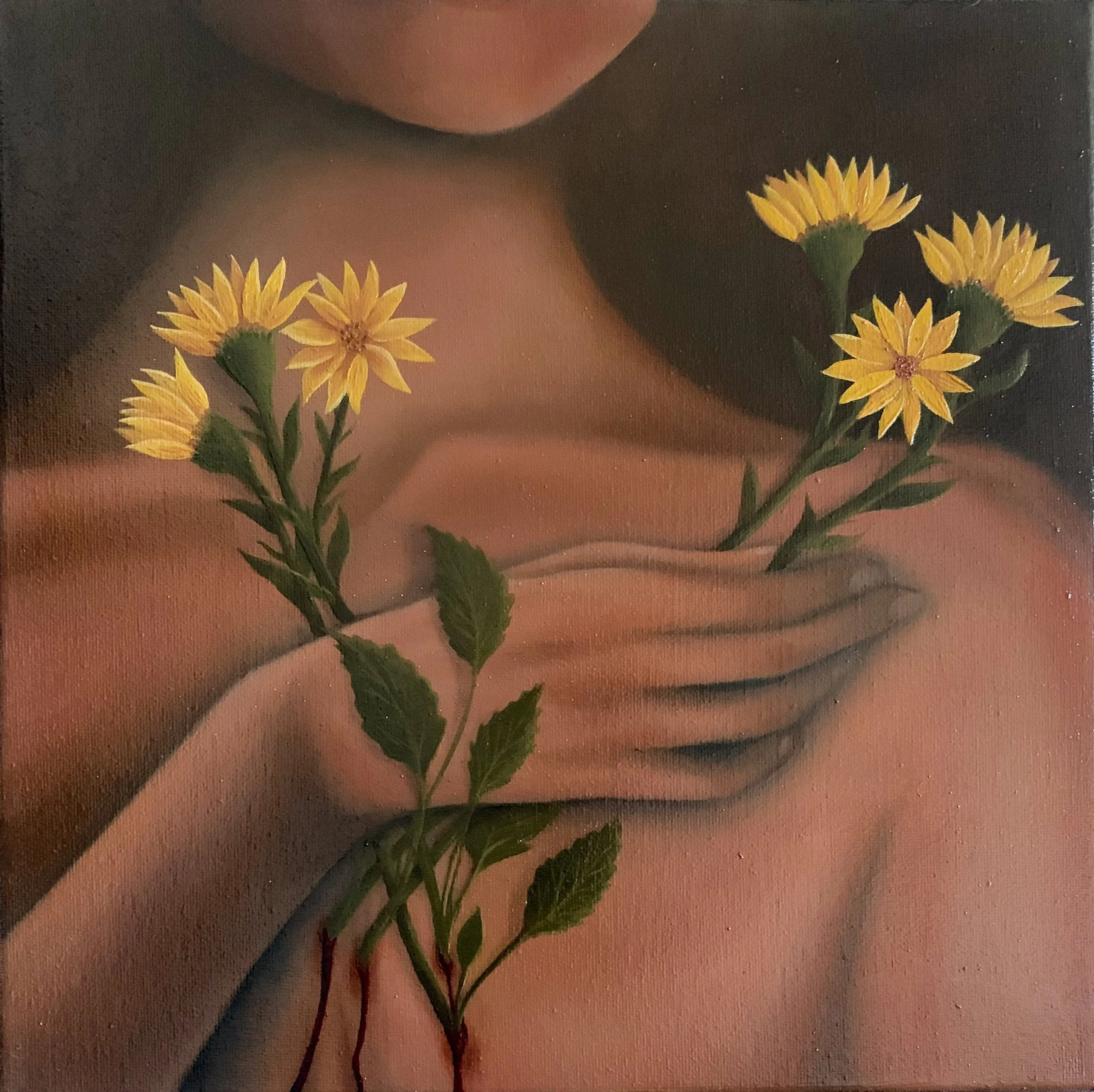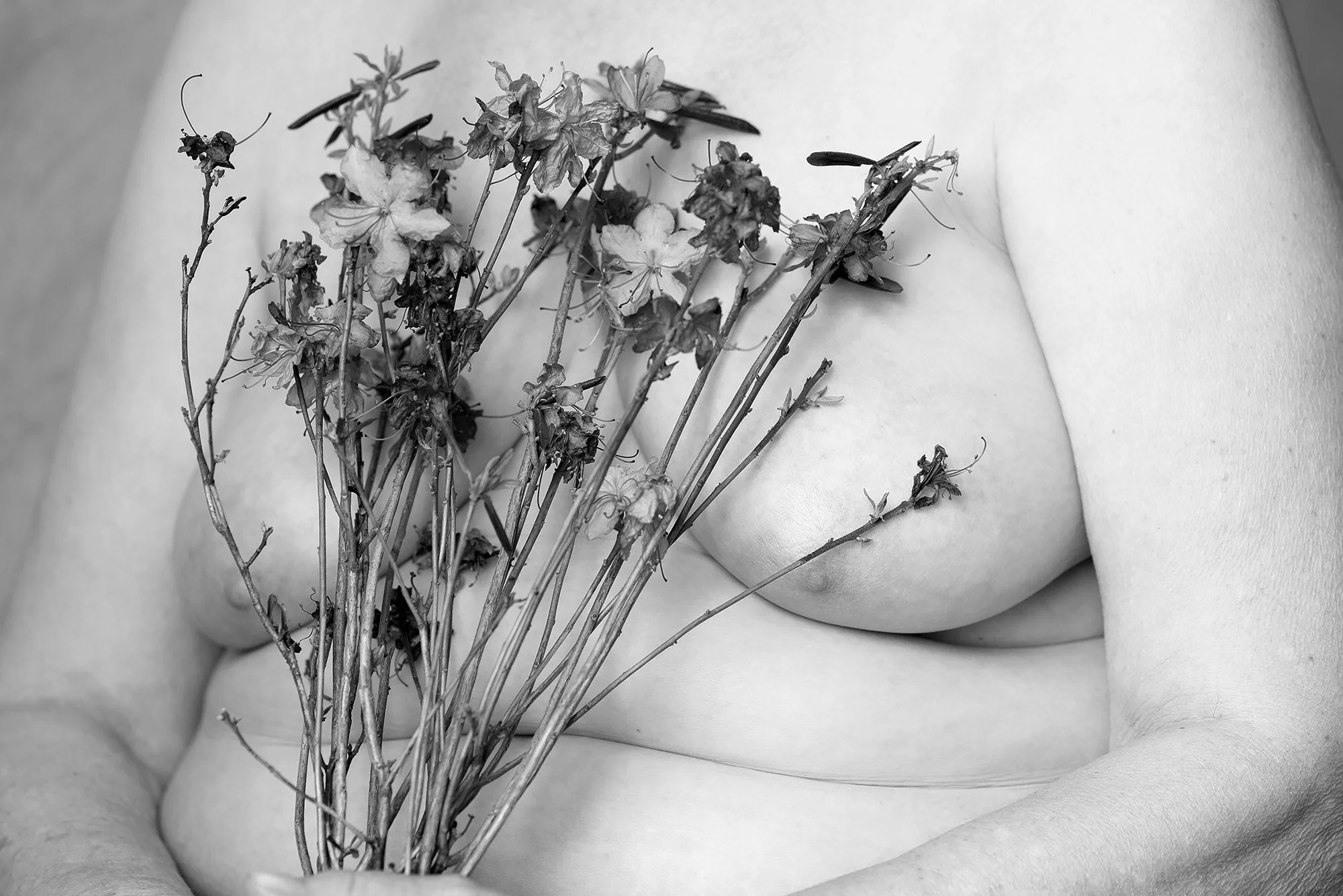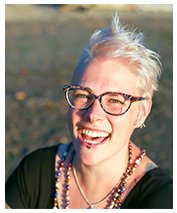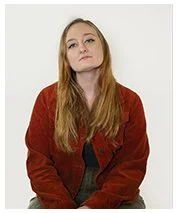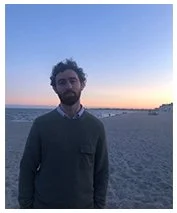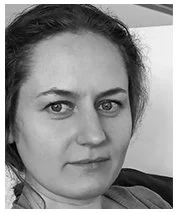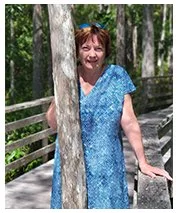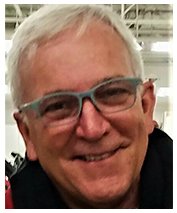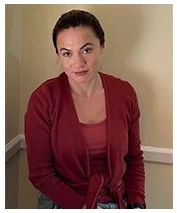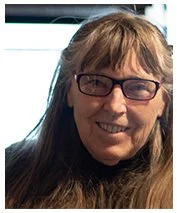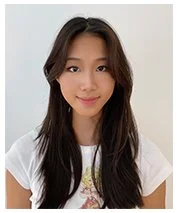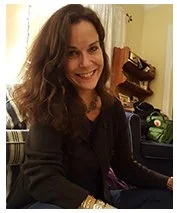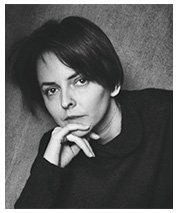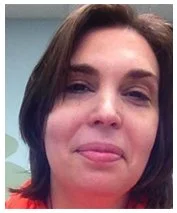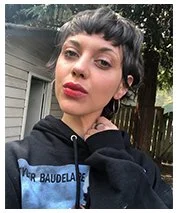#9 Harbor Review
THE FORGOTTEN BODY
Uncarned
by A.NA
Editor's Note
What are we if we are not our bodies? When our bodies fail us, when we must form identities apart
from them in order to align with new realities, how do we remain with them and how do we let them
go? What secrets, what truths are stored in the bones and organs of the bodies we choose to turn
away from, embrace or are compelled to forget?
I came into my role as Editor-in-Chief of Harbor Review at a time of physical transformation and
reckoning with a lifelong eating disorder. In struggling with gaining and losing 60 pounds over and
over again, I have had many versions of the same body. There has always been a moment when I
looked in the mirror and did not recognize my own reflection. This experience has been mirrored in
my recovery from active addiction (7.5 years clean and sober at the time of this issue’s release),
having witnessed my body’s shrinking from life, as though I was consuming myself. And as the laws
governing a woman’s right to abortion suddenly gave way beneath our feet, I felt as though my
female body, the one that had chosen to give birth three times, was suddenly (I was born in 1976,
three years after Roe Vs. Wade) a commodity for the political stage. In reading the poems of this
remarkable issue “The Forgotten Body,” I found myself considering the ways in which a body can
represent a life, an obstacle to life, a country, something unknown, a microcosm of vulnerability or
isolation, and how sometimes, all it wants is to exist in the world.
In “Breathe,” Dorianne Laux writes: “If you want to be a bird, or some part of a bird, just breathe, just
sing.” The body can surprise us with its lack of restraint, with its organic desire for breath and
rhythm. Why do we hold it back from song? In “Ghazal for the Galloping Horses,” Ernest asks, “When
the moths of my body come loose and I thirst, what will be my name?” Our bodies, with their flaws
and weaknesses, their power and disregard for expectation, ask us to acknowledge ourselves as
physical beings while still seeking a spiritual existence. “The Forgotten Body” offers a forum in which
we can explore, embrace or turn away from our physical selves or former physical selves. It wants
the reader to open themselves to, as Brian McCabe writes in “With,” feeling the “need to get back to
my body,” even if only to investigate before forgetting.
After coming to know these poems intimately, I feel a little closer to my own body, to the ghosts of
my body and to every version of myself that I have shed. These poems come together to demand
that we pay attention to what is lost, what is kept, what may be possible, to prepare ourselves, as
Chinedu Gospel writes in “Abecedarian,” for “a new body” or perhaps the old one, with “a miracle
scrunched into it.”
Joan Kwon Glass, August 2022
Portrait of Grief as an Art of Ballin'
by Muiz Opeyemi Ajayi
at the basketball court the sphere slammed so hard / into the chest of the rim / it reminded
me of ways / grief rams itself into a body / rattles the heart like shèkèrè in égúngún rituals /
or plantain foliage in midnight thunderstorms // except that here / the heart / akin to the hoop
/ bears the dunker / muscle / grit / sweat / & sweat / & sweat // & dunking here / is a
metaphor for how loss greets / the skin / purges the soul / & chisels wounds open afresh //
travelling in this context / by no means connote transition / or journey / or flight / maybe a
metonym / for the blank that lingers / long after limbs / move on from an inferno / which
used to be jannah / which used to be blue birds / on lush greens / which used to be / your
failed attempt / at eloquence(ing) beauty / which now / is why you lay up / all night / which
now is why you're still / pivoted / in the cannon of your late lost father's eyes.
The Woman From Tblisi, from the "As Seen on TV" series
by Owen Brown
Breathe
by Dorianne Laux
The moon hangs on a thread from Venus above Notre Dame.
It hangs above the southern hemisphere like an earring
on the tender lobe of the universe. Mars is in the mix,
a chip of ruby, a celestial blip. And we, so much smaller,
walk beneath. We breathe the same air as our ancestors,
at least one molecule from every organism that has ever lived.
How’s that for a scientific fact? How is it that we live
mindlessly from one moment to the next? Our eyes
springing tears from either sadness or laughter?
If you want to be a bird, or some part of a bird, just
breathe, just sing. If you desire, crawl toward it,
breathing like a snail, leaving a trail. If you want to dream,
sleep, go deep and far away. Or look up at the moon
and gasp at its bright face, or down at a baby. Heave
its new born body over your shoulder and feel
its tiny lungfuls of air curling against your neck.
Untitled
by Rachel Coyne
Mindful
by Sherry Shahan
Ghazal for the Galloping Horses
by Ernest Ògúnyẹmí
The bright horses of time steadily gallop towards darkness. Yet,
The boy of golden bone sits humming inside the cowry of his name.
Unbutton the crows. Turn to soft water the pistil of delight. How
To arrive at the mistletoe of testimony? How to salvage your name,
True, clean, from the tender cuddle of a wound? Tufts of pigeons fly
Off the blue sky. The gods shaped like vanity, they cry for their names,
Misplaced, perhaps forgotten in the infinite alphabet of awe. Tunbosun,
My father surrenders his ravens, The rose burning in the blood is the name
Your mother forgot to give you. I ask the mirror to stop unfolding.
When the moths of my body come loose and I thirst, what will be my name?
My Mother’s Ashtray
by Nicole Cooley
with the last of her DNA silver clamshell snaps shut
now shoved under my couch to avoid also to save
while I want my mother to return to offer me a list
how I failed to snip a strand of her hair
at the funeral home for safe keeping how
I never wore the skirts she sewed after my first love left
how when she visited to help with my babies I refused
to let her smoke in the house demanded she sit on the cold
porch with the ashtray without her now I am back at the dark corner
of myself the old urge to step out of my body drop it
on the floor like a crumpled dress skip a meal run harder
as I lie on the floor of my daughter’s room fevered and finally
asleep too old for this in the middle of the night I will
my mother to come back to slip the ashtray out
from underneath the couch ashtray I won’t empty
should I save the butts her lips once touched their own
museum exhibit she won’t return which means I fail
my mother we called the skirts the guilt skirts
they still hang folded stiff on a hangar beside my girls’ dresses
and her nightgowns my father gave me I know she kept
the ashtray secret from my daughters under the couch
ashed and ready just as I collect my teenage daughters’ baby clothes
in a box ruffled toddler dress blue onesie
just as I wear her black raincoat now as if my body
could ever be equivalent to hers I flip the ashtray
open like a beer can or a jewelry box a bed warmer
to be held against a hearth fire I research ashtrays
on eBay to avoid myself to not finish this poem
in which my mother is finally dead and I have the evidence
in my house skirts and butts this stick handle like a wrist
Untitled
by Audrey Williams
One Answer, or None to Hers or His or Mine . . .
by Margo Berdeshevsky
How you have painted the painter from
inside his star splattered mind and made
monologue of his almost sweet decline
How a home fire chokes
all in its path—not enough rain or
hope to save or doors to bar—how
sleet at last stilettos our winter
visions—a bitch high-heeled femme
determined to frighten Sunday dawn
into submissions minus sleep
How I ache to run naked in the painter’s
calla lilies jonquils amber or
yours—you will say the painter made
them live—even so—even so
The rest of us are afraid of
our dying of their dying-minute scorched
sky—grieving for more than breath or
door or paint or prayer will heal a body
Who will paint a door in it, what saves
too vast too old too young
even so
How a star splattered mind
can hold a breath
if you draw it well enough
color knifing through—
if you whisper it in
terrible dark until wing-fall
There will be—
—a terrible bright
Portrait of a Broken Boy
by Shitta Faruq Adémólá
Layered Graces 2
by Linda Armstrong
My Father the Racecar Photographer, My Husband the Flower Painter
by Kelly Gray
My father, lensmen of the north,
film lab and pavement.
Smooth lines of Aston Martin,
I stood inside the engines to beg his lens
remember me now, the smell of darkroom metallic.
My husband blends pinks the anatomy
of a shadow. Let me dismantle roses,
sketch me stamen and pistil.
I stand inside his flower to beg his brush.
It’s all the same picture, our eyes squinting ache.
Photograph:
He was holding the seat until he wasn’t
a wobble dipping between my wrist handlebars feet pedals,
I pulled myself up straight as his voice faded
into the background,
I am right behind you.
Painting:
My husband holds me as a bundled infant.
I purse my lips to nurse as if he offered me a breast.
He whispers, Let me mama you.
I pull the blanket up
I am whole, I am whole.
Quatrains:
They both look out at the forest
remark on the diversity of green.
Fern and tea green. Jade, mint, hunter.
Absinthe, asparagus, nori, and olive.
I write nuance a pattern,
deepen meanings
echo with detail. An omission.
They tell stories of things I have not seen.
Beautiful women, collected.
They drape background,
eat lobster, dirt track jalopy.
I take notes. I take notes.
Three Weeks
by Lane Falcon
. . . more than one third of all child deaths occur within the first month of life . . .
World Health Organization
1
Just a dirty trick
should he sink into the ether,
the slot he left open,
the finger-groove of air.
2.
I stare at the hairs on his head
surface current
under his moleskin scalp.
Parallel veins head for the same vanishing
behind one ear: escape,
for me too, seems possible
if I can gaze myself in.
Mine for the smallest unit of space
between his dying skin cells,
between the first brief lashes
studding his eyelid.
3.
My son
stitched to the sheet by tubes and tape,
into the embers with versed and pain.
His vocal cords, the ENT confirmed—
after he fished in his throat for
an image to explain the cyanosis,
the cry casting gill-like shadows
in his clavicle—paralyzed.
Fire flattens to ash,
the life I saw flare yesterday
in his eyes
Is that a smile?
retracts.
~
I fold into rectangles
my dearest wish:
the disappearing alphabet
of what I can’t say
the air says for me.
Lemon Dreams
by Despy Boutris
To Dance
by Dorianne Laux
To suffer the moon, her fine filaments
of borrowed light, the embouchure
and embellishments of the saxophone
at dusk, sifting through the pines, a baby
born with holes in its heart, the quantum
of matter, ice-white and nameless,
that comprises the soul, the black-tipped
ear of the listening fox, the prisoner
in his box. This is the fate of the living:
to endure the world, to be the body
of an instrument that breathes the air in
and breathes it back out in song.
The fate of the living is not to suffer
but to dance. Look at a baby just
learning to stand holding on
to the table leg. Someone sets
a needle to the groove
and the dancing begins, music
embedded in the spine,
a flute pitch-white as the moon,
some nameless longing it listens to
and sings back. Look at the peacock
spider who drums a beat
with its bright abdomen, waving
the filaments of his legs to attract
a mate, the great sage grouse
who dances for two weeks, losing
a quarter of his body weight,
the mud-skipper, the devil ray,
the shrew. It’s what the living do:
waltz to an etude or symphony as prelude
to love. Even the moon does her dance
among the stars’ traveling light,
waxing and waning as she
notches her way through the trees.
The fox’s floating tail, the humpback’s
complex song, though they wait
to find their mate before they engage
in a slow-moving graceful tango,
rolling over and under each other
in that titanic expanse, each
with his own Matilda, her own
saxophone blowhole.
Cadavre Exquis
by Natalia Marin
Ageing Gracefully
by Ricardo Jose Gonzalez-Rothi
Skin-Hunger
by Gail Goepfert
In the dream. He’s dead, and he’s alive.
I am drowsy when I bend
over him, corpse-like and sleeved in ice
on a white-sheeted bed—
laid out like a body in autopsy.
The ash of him. He would want it by the river.
In the dream. He’s dead. He’s alive.
We have no language, need none.
I know where his bruises chafe.
We’ve had only a firefly’s light of time—
we could not love each other well.
I say thirst. But his river does not appease.
In the dream. Dead. Alive.
I try to stir him, to erase his wound-scars
worn like secreted tattoos, memorized
and retraced—leaving him parched .
Icy. I must use my hands.
I say hunger. No fish rise to feed me.
In the dream. He is mostly dead.
I stroke to soothe again, and yet again,
beginning with his shoulders. On his torso,
I use long strokes like slow reaches
of a canoer’s paddle. I am unashamed.
I say enough. I want this. For him and for me.
In the dream. Is he the waking dead?
His ice-encased limbs melt to free
him from the whole. Why can’t
my hunger thaw more than memory?
I will him to waken as I map
his lips eclipsed by whiskers
with my fingers. A mouth, lips,
powerless to feed me.
Üksinda—Alone
by Aureelia Mitt
Diagnostic Echocardiogram
by Violeta Garcia-Mendoza
In a darkened room, in pediatric cardiology,
our son lays atop a papered table—chest bare, quiet—
lets the cold wand of a machine
call sound waves through his body.
He holds still, the way we’ve practiced—
butcher paper, crayon outline—
while monitors throw light across the walls,
blank save for the wallpapered parade
of pastel dinosaurs, stickers sick children stick
haphazardly, small nicks in the pale green
plaster—maybe kicks. In the children’s hospital,
such are the many-chambered outcomes.
These diagnostics are aquarium-lit, my son
and husband and I quiet and aglow as fish
while the sonographer tries to distract us
from the ocean of the heart’s anatomy.
I keep a single room inside me where I let myself think
about drowning, sink, run drills for what ifs—what if this is
the tidal wave . . . the flash flood . . . the specialist . . .
Motherhood is an everyday sandbagging
of the life . . . the house . . . the heart . . . the body . . .
You watch the clock tick; our son’s eyes stay fixed
on me; I watch his valves on screen
relax and squeeze—heart beat half-sick
suspended between dread and marvel.
The Egg
by Emanuela Iorga
With
by Brian McCabe
Summer, another summer, all
the familiar things strange.
I have forgotten what moved across
a blue it was the absence of
or what was heard in the actual street
when it sounded of elms only;
facts my life makes in moments
too brief to remember being in.
+
However ruminative I felt myself
not any particular man, asking
with this borrowed throat am I
the same me dusk falls less humanly
around? The answer always yes.
There is only everything
varied each wan dawn; this October
in its winglessness. I woke thinking:
I need to get back to my body.
When I left, Sofia told me just be you.
+
Then winter, it was nothing to no longer
make of each commute to the students
I’m paid to teach some meaningful distance.
It was nothing to want the world
to reveal the day. As anything offered:
the sudden branches, sky the nothing
something conceals itself with,
spring returning to what it is.
But what I love, I later told my students
nightmares still fresh in their mouths
is there are never words complete for this
invincible offing inside you
Recurring Wakefulness
by Rawan Abbas
Arnica
by E. Lozano Rodriguez
How Not to Kill
by Abby E. Murray
This is how I begin:
I prop up three sprigs
of leftover rosemary
in a rubber pot of dirt
then forget about them.
*
The kindergartener
in me remembers:
water and sun.
So I move the pot
to the sill. It lives.
*
Mostly, what I’d like
to grow ends up not
existing before I can:
basil, savings, embryos.
Not even cacti survive me.
*
If my love for distraction
was water, I would travel
only by boat and sleep in
a vase. I would drink a glass
of days for each hour I breathe.
*
I bring water to
the rosemary,
already resentful.
Nobody brings
water to me.
*
This is
what they
call an
inhospitable
environment.
*
The rosemary sprigs tilt
toward the sunny windowpane.
Thinking they’ve collapsed,
I rotate the pot and tell them
it’s a good thing I am here.
*
For days, they lean against
nothing on their way back
toward warmth. I turn
the pot three times before
realizing why they bend.
*
So far, I cannot return
stolen light, sugar
and oxygen never
converted or consumed.
I try anyway.
*
The sprigs
stretch and twist,
growing sideways,
down, then up.
I bring water.
*
The rosemary opens its arms,
two limbs apiece now
on each spine. They dance—
as if to forgive me?
As if to forgive me.
Sit Inside the Grief, Man
by Ernest Ògúnyẹmí
I know too many boys with dead mothers.
The cloves of our griefs dropped in silence.
At night: Petal salt over the pillow, quietly
Drown the ribs of the ache; when the door
To that other world of shivering stars appears,
Step in with your sleeping body and there,
Pick out twigs from her hair thick with rust.
After his mom died, my friend smoked enough
Cigarettes to burn down an age. These days,
He acts like grief is a cowry, smooth myth.
Not knowing what to do with my sorrow,
I grew a garden of blades in mourning. Now,
With all the teeth she gave me, I smile. The
Language of her face, pale history. The syllables
Of her name, each dropped in fabled water,
The ravenous gods of time, they ate her hands.
The both of us sat in cold darkness, I ask Akos if
She comes to him wearing moonlight, his mother
Who died when his brother was born. He says,
That is such an old song man—what’s the use?
Uncarned
by A.NA
Fed Up
by Amber Valois
Abecedarian for the Portraiture of an Old Body
by Chinedu Gospel
all i wanted was a new body. the old one had
become so frail, a miracle scrunched into it
could barely come alive. i have forgotten my
dead. they don't visit my dreams anymore. my
eyes, incapable of memories. call me fissured body.
father, i leak in the unwanted places. what is the
geometry of home? tell me, because every
heron in my throat is a foreign song. & i don't fit
into the thresholds of open doors. they call me
jaded feet, say the closest i am to destiny is my
kneeling from the coordinates of heaven. my tongue
/ l /-eaps to touch God in the enamel of my upper
molars. & the closest i have come to this miracle is a
nightmare in which my tongue tastes the
ostealgia in the bones of my old body, sweet like
pineapples. all i crave is a river that longs into a wound &
quickens it. i pay attention to my scar, it understands
recuperation as open flesh, salt. i hold a lime &
slice it open with a knife, press the liquid on my bare
tongue. yet, my prayers like overripe fruits splinters
under my very own knees. every morning, i stretch my
veins into a harp. now, all i want is to make melody
with my old body. a cacophony of grief & glory. beloved,
x-ray this body. & tell me if you find a broken
yoke in the depth of my bones —heaven filled with a
zestful ache for a new body to sprout from this old one.
Brunch
by Fia Montero
She says she has to change her shoes
before talking to the family
which is to say, nobody wants to see
mother / father / son / daughter
slowly clotting
on a surgeon’s clogs. The body
is a melon, the flesh, the seeds
obscene outside the context of rind,
which is to say, surgery is not brunch
but there are similarities.
This is my body, broken. This is my
flesh, pink and wet
and on display.
This is a stainless steel spoon,
which is to say, an instrument
for carving
melons. And growths the size
of melons. She says we got it all
which is to say, the cells haven’t spread
out of context.
This is my body, stitched. This is my
flesh, remade.
Mum
by Oksana Prikhodko
Spring Hymnal
by Madison Xu
It’s your lust for fragility,
How you do not quash the beetle
between your fingers,
Because today you choose to be merciful.
A reassurance,
that if the jutting of your knuckles
Can mangle life into silent ribbons, then perhaps
you deserve to play God in this sallow garden.
The girl cups her face like ripened plum,
And carries her bruises like birthmarks.
How she cultivates herself from the steady drip
where the tin roof leaks,
Grows proud that her skin is spilled daffodil,
And caramel soil and rich cacao.
She is ephemeral, slack jaw hunger
For the sun they hid behind the frost.
Fighting teeth, spine, fists,
Her words detonate in syllable,
blistering animal against the muscle of her tongue,
This living thing they calcified,
Begging for rebirth,
In arpeggio.
I Used to Be Your Baby Girl
by Shelbey Leco
A.NA is a young french photographer who, after years of wandering, now devotes herself to photography. In front and behind the camera, she explores and does not forbid herself anything as long as she can let her thoughts out, trying to grasp the elusive, to extract a piece of the essence of life.
Abby E. Murray is the editor of Collateral, a literary journal concerned with the impact of violent conflict and military service beyond the combat zone. She served as poet laureate for the city of Tacoma, Washington, and recently relocated to Washington DC.
Amber Valois is a contemporary mixed media artist currently living in Kissimmee, FL. Combining her skills in creative writing and design in her pieces, she considers her work confessional art. Her work has been featured in Fringe festivals, group exhibitions and Corbeaux Magazine. Her Instagram is: @amber.valois
Audrey Williams is an oil painter practicing and raised in Dallas, Texas. Her practice revolves around themes of gender identity and mental illness. She seeks to create imagery that represents some of the unseen trauma within her community, and shed light on alternate forms of beauty that contradict societal standards. Williams is an M.S Counseling Candidate at Southern Methodist University and holds a B.F.A in Studio Art from the University of Texas at Austin. Williams is also a teaching artist at the Creative Arts Center Dallas.
Aureelia Mitt is a contemporary artist based in Tallinn, Estonia. She has studied BA Art Practice in University of South Wales and has a MA Sustainable Design degree from Kingston School of Art. During her emerging artist career, she has taken part of two residencies in Estonia and shown her paintings in group exhibitions in Estonia and the UK.
Brian McCabe lives in New York City, where he teaches English. His poems can be found in Counterclock, Random Sample, The Broadkill Review, among others.
Chinedu Gospel, frontier IV, is an emerging Nigerian poet. He studies Anatomy in Nnamdi Azikwe University. He finds pleasure in exploring diversified themes amongst which are healing, hope, grief, loss, resilience, political mayhem. He won the StarLit Award for the 2021 winter issue of Aster Lit. He also won an Honorable mention in the Kreative Diadem Annual Contest (poetry category). Some of his works have appeared or forthcoming in Fiyah magazine, Hoax magazine, AsterLit, Roadrunner Review, Savant Garde, Temz review, Roughcut Press, Icefloe Press, Agbowo arts & elsewhere. He plays chess in his leisure.
Despy Boutris's work has been published in Copper Nickel, Ploughshares, Guernica, Crazyhorse, AGNI, American Poetry Review, Gettysburg Review, and elsewhere. Currently, she lives in California and serves as Editor-in-Chief of The West Review.
Pulitzer Prize finalist Dorianne Laux’s most recent collection is Only As The Day Is Long: New and Selected, W.W. Norton. She is also author of The Book of Men, winner of the Paterson Poetry Prize and Facts about the Moon, winner of the Oregon Book Award. Laux teaches poetry at Pacific University. In 2020, she was elected a Chancellor of the Academy of American Poets.
E.L. Rodríguez is an emerging visual artist who had her first gallery exhibition this year. She specializes in oil painting and poetry. Her artistic style is influenced by the surrealism and symbolism movements. Central to her artwork are themes of healing, decolonization, indigenous culture and perspectives, and nature.
Emanuela Iorga is a filmmaker, artist, and screenwriter, who lives in Chisinau, Moldova. Art represents for her a recently rediscovered passion, following a series of world and inner changes. She was previously published in Jet Fuel Review, Beyond Words and Please See Me. Her work can also be found at https://manolcaincosmos.wordpress.com/270
Ernest O. Ògúnyẹmí writes from Nigeria. His work has recently appeared or is forthcoming in AGNI, Joyland, Kenyon Review, Bodega, the Journal, Southern Humanities Review, Bath Magg, Cincinnati Review, Worcester Review, Rust+Moth, the South Carolina Review, No Tokens, SAND, Agbowó, the minnesota review, Mooncalves: An Anthology of Weird Fiction, Poetry Ireland Review, and elsewhere. He is currently pursuing a BA in History and International Studies at Lagos State University.
Fia Montero is an autistic poet based in Des Moines, Iowa. She holds a BFA in art and design from Iowa State University, and a BSHS in pre-medical studies from Mercy College of Health Sciences. Her work has been published or is forthcoming in West Trestle Review, Literary Mama, Rogue Agent, Passengers Journal, and Thimble Literary Magazine.
Gail Goepfert, an associate editor at RHINO Poetry, is a Midwest poet and photographer whose recent publications include Self-Portrait with Thorns published by Glass Lyre Press in 2021. This Hard Business of Living, a collaborative chapbook with Patrice Boyer Claeys was released in 2022.
An academic physician, amateur photographer and writer, Jose Gonzalez-Rothi has had his work awarded, published or forthcoming in Light, Space and Time Gallery, Northwest Review, Fusion Art Gallery, London Photo Festival, Wanderlust Travel Journal, Grey Cube Gallery, Hispanic Culture Review, Tiny Seed, Ilanot and About Place journals. Gonzalezrothiphoto.wordpress.com
Kelly Gray is the author of Instructions for an Animal Body and the audio chapbook My Fingers are Whales. Her writing appears or will appear in Passages North, Pithead Chapel, Dream Pop, BULL, Superstition Review and elsewhere. Her book of short stories Tiger Paw, Tiger Paw, Knife, Knife is forthcoming from Quarter Press in 2022.
Lane Falcon’s poems have been published in American Poetry Journal, The Carolina Quarterly, The Chattahoochee Review, The Journal, New York Quarterly, Poet Lore, Rhino, Spoon River Poetry Review, and more. She is currently working on getting her first manuscript, Deep Blue Odds, published. She lives in Virginia with her two children and dog-baby.
Linda Armstrong is a painter, photographer, and writer. An artist's daughter, she grew up with sketching trips and gallery openings. After a midlife crisis, she started painting and drawing seriously. Her works explore the relationship between realism and abstraction.
Margo Berdeshevsky, NYC born, writes in Paris. She is the author of Before The Drought (Glass Lyre Press). Her books It Is Still Beautiful To Hear The Heart Beat (Salmon-Poetry) and Kneel Said the Night (Sundress) are forthcoming. She is the author of Between Soul & Stone, But a Passage in Wilderness (Sheep Meadow Press), and Beautiful Soon Enough. Other honors include the Robert H. Winner Award from the Poetry Society of America. For more info, kindly see her website: www.margoberdeshevsky.com
Madison Xu is a high school junior at the Horace Mann School in New York City.
Maria Natalia Marin is my name and science is my art medium. In my creations, I blur the line between these two fields, particularly focusing on the beauty of the living world and the way it inspires the human mind and body to evolve. My main purpose is to remove the barriers between these two fields and encourage both artists and researchers to work together for the greater good.
Muiz Opeyemi Ajayi, Frontier XVIII, studies Law at the University of Ibadan, Ibadan, Nigeria. He’s an editor at The Nigeria Review, and has works featuring/forthcoming on Rough Cut Press, Nigerian News Direct, Kissing Dynamite, Ice Floe, The Aurora Journal, Brittle Paper and elsewhere. He was second runner-up in the 2021 PROFWIC Poetry Contest, and an ARTmosterrific Writer-in-Residence.
Nicole Cooley grew up in New Orleans and now lives outside of NYC. She is the author of six books of poems, most recently Of Marriage (Alice James Books, 2018) and Girl After Girl After Girl (Louisiana State University Press, 2017), as well as Breach (LSU, 2010) and several other collections. She has published two chapbooks, Frozen Charlottes (Essay Press, 2016) and Vanishing Point (Floodgate Editions, 2020), written with her father Peter Cooley. She is completing two new manuscripts, Trash, and Mother Water Ash. She is the director of the MFA Program in Creative Writing and Literary Translation at Queens College, City University of New York.
Oksana Prikhodko was born in Angarsk, Irkutsk Region. Studied directing at the Irkutsk Regional College of Culture. Graduated with honors in 2003. In 2008 she graduated from the Ural State Pedagogical University with a degree in organization management. In 2018 she became seriously interested in photography and started shooting her first project My Holland—portraits in the style of Dutch painting of the 15-17 centuries. In her work she addresses the themes of self-identity, relationships between people, establishing connections between a person and a specific place, home. Touching and examines social issues through the image of man. She works in the genres of portrait, self-portrait, documentary and art photography.
Since June 2021 lives in Tbilisi, Georgia and travels to Russia (Yekaterinburg, Chelyabinsk, Moscow, St. Petersburg, Irkutsk, Angarsk).
Since December 29, 2021—member of the Union of Russian Photographers.
Owen Brown trained as a classical musician, took a drawing class at 23, and what he’s wanted to do since then has been paint. Brown attended Yale, the University of Chicago, and CCA. His works are in collections in this country and abroad, including the Fine Arts Museums of San Francisco, the Weisman Art Museum, the University of Chicago, the Nature Conservancy, and the Minnesota Historical Society. He lived for 30 years in San Francisco, where he was represented by Meridian Gallery. He now lives in Minneapolis, where he is represented by Veronique Wantz. His instagram is @owen_artist.
Rachel Coyne is a writer and painter from Lindstrom Mn.
Rawan Abbas (b.1996) is a multidisciplinary artist based in Cairo, Egypt. She has participated in many exhibitions where she exhibited textiles, sculpture, installation art, and video. Her current body of work is concerned with notions of identity, social interactions and private gestures of intimacy. She is @roabbas_ on Instagram.
Growing up in Southeast Louisiana, outside of New Orleans, Shelbey Leco was always inspired by nature and art. As a young adult, she studied at the University of New Orleans where she obtained her bachelor's degree in Interdisciplinary Studies in Urban Society with disciplines: education, english, and anthropology. She enjoys traveling, art, and exploring new places.
Sherry Shahan wanders the globe as a travel journalist, often watching the world and its people from behind; whether in the hub of London, a backstreet in Havana, or alone from a window in a squat hotel room in Paris; whether with a 35 mm camera or an iPhone. Her art has appeared on the covers of Rattle, Josephine Quarterly, Impspired, Orion’s Belt, Yolk, Invisible City, and elsewhere. She holds an MFA from Vermont College of Fine Arts.
Shitta Faruq Adémólá, Frontier XIV, is a 2021 SpringNG Writing Workshop alumni, a young Muslim Poet, budding French linguist, Phone Photographer and Fiction Writer From Nigeria. He is the author of a microchap All I Know Is I Am Going To Be Beautiful One Day (Ghost City Press, 2021), and Night Club With Dogs (INKspired, 2022).
Violeta Garcia-Mendoza is a Spanish-American poet, writer, and photographer. She is a member of Carlow University’s Madwomen in the Attic Writing Workshops and a reader for Split Rock Review/Press. Her work has been nominated for a Pushcart Prize and has recently appeared or is forthcoming in Peatsmoke, The Dewdrop, and Saint Katherine Review. Violeta lives with her family in Western Pennsylvania.


